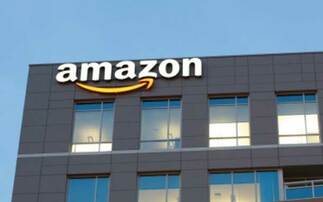
We're drowning in -Ops: Dev, DevSec, HR, AI, Fin and more. At their heart, all these terms are about "making data transparent so engineers can understand how to create business value."
That was insight from Liv Wild of Checkatrade, and formerly Expedia, during a panel at esynergy's event on cutting cloud costs in London last week.
"An approach like FinOps and DevOps can make [cost] much more observable," she said. "You don't forget about dealing with things that are costing you a lot of money. Having data available [to engineers] at Expedia Group has meant they look for opportunities to save money."
Ian Poland, CIO at Sportradar, agreed "transparency and observability" are key to FinOps' success, while Ben Conrad - cloud platform product owner at John Lewis - said the data from FinOps can "empower developers to really go wild."
Where to begin?
If data is all-important to FinOps, and thus to getting control of cloud spend, then making sense of it is the best place to start. Depending on your estate, that's easier said than done.
At least two panelists described their original data situation as "a big ball of mud" they had to unpack. Metadata tags were "the least-worst solution" to start creating "a sense of clarity."
"The honest answer is people come to FinOps because they made some bad decisions five or eight years ago," final panelist Ben Burdsall, CTO of dunnhumby, admitted.
Burdsall agreed with his peers that data visibility is important - but he defined FinOps differently to them:
"To me, FinOps is a good argument with the CFO. It's not about the technology or tools; it's about having the right mindset and having your engineers having the right mindset.
"In the old days of datacenters, we would design for things like scalability, resiliency and security… Now the fourth pillar is designing for cost. That becomes more and more important in a cloud world."
Cloud, cost and culture
A bit tongue-in-cheek, but Burdsall makes a good point: like other types of -Ops, FinOps is all about mindset and culture. That means correcting assumptions - gently, where possible.
"FinOps isn't a business, finance or tech challenge, it's holistic," said Poland. "You need to educate them all about what FinOps is upfront, otherwise finance will assume it's just about them."
But, he added, he has a simple solution when the CFO argues about the cost of cloud.
"I just ask, ‘Which revenue-generating service would you like me to turn off?'"
Taking the buying power away from finance and giving other teams - especially your engineers - the ability to control their own cloud spend is a major sticking point. Poland warned it is a "big cultural shift," and education plays "a key part."
You want your cloud costs going up
One thing it's important to get right in FinOps is KPIs, so beloved of modern business. "I wouldn't write reducing cloud costs into anyone's KPIs," said Burdsall. "Cloud costs will almost always rise. The thing you want to have in a growth company is your cloud costs going up, because it means your revenue is rising. You want cost-per-unit coming down."
FinOps is not about setting a budget on cloud costs, Conrad said; it's more about getting the right information to the right people, so they can take the appropriate action.
Wild gave an example:
"About six months after I joined Expedia, we started to publish our cloud costs into our Slack channel. Just enabling our developers to see that information led to approximately 10 tickets being created that were going to save us hundreds of thousands of dollars.
"The engineers already knew that that was a problem, they just didn't feel empowered to even suggest those changes; but because it became part of our software delivery cycle it was much easier to find ways of reducing the costs.
"I don't think I would go back to any other way of operating."
This article originally appeared on our sister site Computing.


















